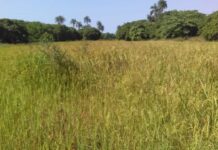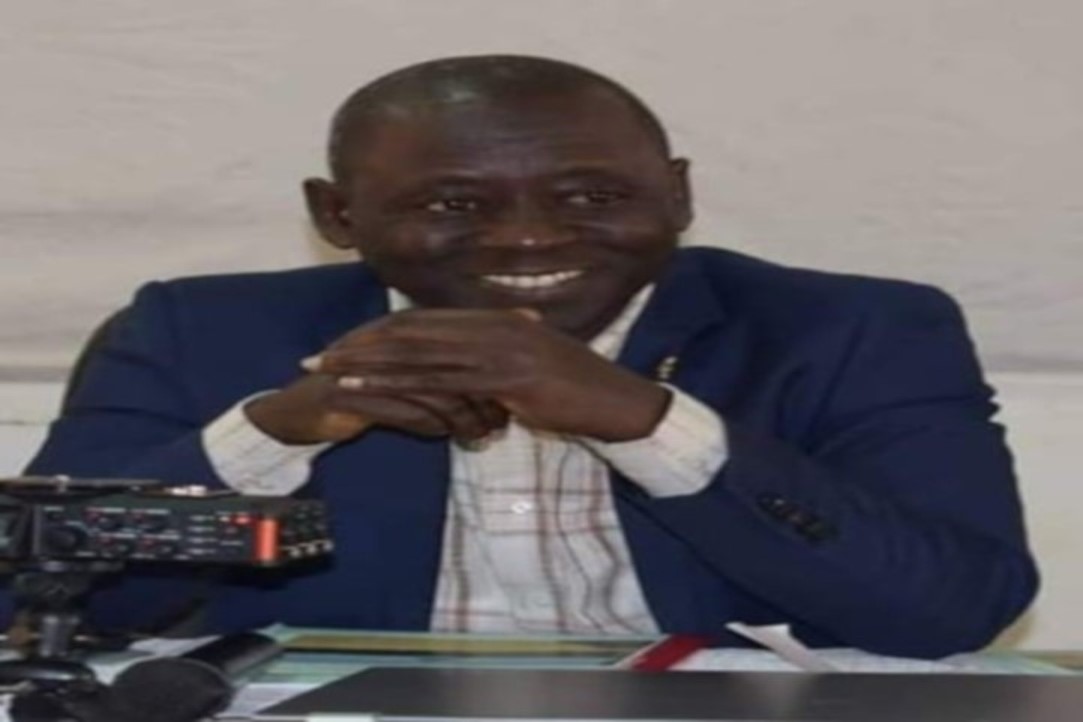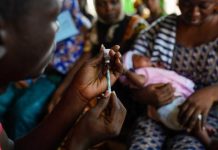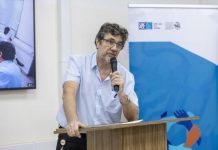Dated 9th April 2020
On 17 March 2020 His Excellency the President of the Republic of The Gambia addressed the nation on the status of the Coronavirus (COVID-19). Subsequently, he declared a closure of all Schools and Educational Institutions as a measure to protect children, teachers and school Managers to control the spread of the virus.
The nationwide school closure directly affects about 674,300 children in Conventional and Recognised Madrassahs schools from Early Childhood Development to Senior Secondary School. It is estimated that 72 hours of instructional time would be lost during the initial 21 days of school closure. More hours will now be lost due to the extension, thus the Ministry will be seriously challenged in its desire to achieve its annual target of 880 hours of instruction. Beyond, the loss of contact hours, the Education Sector recognizes the potential risk of children being exposed to this deadly virus through loitering in the street and other forms of gathering.
Under the circumstances, The Ministry was presented with an unprecedented situation of choice between doing something or not doing anything at all.
On one hand, we could just ask the children to go home without any form of learning and wait for the end of state of Emergency. This means zero result and possibility of loitering and exposure of children to the deadly virus.
The Ministry opted for the alternative which is to come up with an intervention to keep all learners at home for safety and continued learning, that is, to do something to mitigate the loss of instructional hours and keeping school children engage and ensuring continuity of learning at home. By this, we decided to deliver some curriculum using alternative and innovative means. Specifically delivering lessons through radio and TV.
Together with our stakeholders we developed a strategy with the following specific objectives in mind:
• To sensitise children and their families of the threat of COVID-19 and how to protect themselves from infection and transmission of the virus within their communities.
• To ensure continuity of learning during the period of State of Public Emergency and progressively expand the curriculum coverage using multiple platforms
MOBSE POLICY OBJECTIVE BEFORE COVID 19
It is important to emphasise that Distance Education has been part the Ministry’s plan, as clearly enshrined in the Education Policy 2016 – 2030. The Ministry has already started the implementation process of this plan. You would realise that Ministry already has its own TV Station and is currently working on having community radios in all regions. The purpose is to use TV, Radio and other platforms to strengthen teaching and learning in all Educational Institutions. Already, some of the Senior Secondary Schools have been provided with TV Sets and plans are on the hold to connect them to MoBSE TV and thus avail them the opportunity to benefit from lessons of experience teachers in certain rare subjects. This would address the challenge of acute teacher shortage especially in the rural schools. We are also currently working on providing internet connectivity of all our schools thanks to the support of MRC Holland. Our IT unit is also engaging various IT consultants to develop platforms for educational purposes. Very importantly, some of you may also have been privileged to know that about 1000 schools are about to be solarised with the support from EU.
From the above explanation, it is clear that use of technology to deliver Distance Education is an integral part of our plan and the Ministry is about to put the right infrastructure in place for this program.
Although, the advent of COVID 19 has accelerated the implementation of our Educational Broadcasting strategy, it clearly shifted our targets from schools to homes, which has brought out some limitations to the implementation of the initiative. For example, the issue of electricity, non-availability of TV and radios sets in deprived households are some of the glaring hurdles confronting our current Distance Education programme. Despite, these difficulties, we are strongly convinced that, the benefit far outweighs the demerits. We are conscious of the fact that the current initiative is not a perfect strategy but at least everyone would agree that some form of learning has taken place in the past 21 days and the initiative has help keep some children at home and thus contributes to curb the spread of the virus. We are very convinced, if all stakeholders play their part we could have registered even more achievements. We are aware that some children were playing in the streets whilst the lesson were being delivered and some attributed that to the ineffectiveness of the program. However, rather than attributing loitering of children to inadequacy of the program, It is our collective role to sensitise and even support the children to be indoors. Remember not having radio or television cannot be a reason to be in the street. In the worst case scenario, there is a book to read at home. COVID is real and deadly!!
Prior to embarking on this initiative, we did analyse the available GBOS data, which guided us in our planning process. The MICs data suggests that 78 percent of Gambian owns radios, with 98% of the household having telephones. In addition the involvement of all community radios also guaranteed country wide coverage.
Having said all these, It should be emphasis that, “there can never be quality education without the meaningful participation of the parents”. Therefore, the success or ineffectiveness of the initiative depends considerable on the support from parents, families and the general public at large. We can deliver the lesson through the radios but we cannot prepare the children to receive these lessons. Just like how you expect parents to prepare the children to attend schools. Parents are expected to give the same support to the children to receive their lesson through radios and televisions.
DISTINGUISHED LADIES AND GENTLEMEN,
Subject Coverage
The subject coverage focus mainly on the core Curriculum areas for all the various education levels, also for both conventional and Madrassah Education. Such areas include:
Early Grade Reading Abilities (EGRA), Early Grade Mathematics Abilities
(EGMA) for LBS.
Biology, Physics, Chemistry, Mathematics and English Language Art for
UBS and SSS.
A total of 100 lessons were developed recorded/filmed and available for broadcasting during the 21 days’ school closures. More lessons will be recorded for the coming days.
The exclusion of Madrassah
We have received concern from the General public about the exclusion of Madrassahs from the ongoing programme.
We want to make it clear that we have inclusive education policy and our derive towards achieving the synchronised curriculum calls for all-inclusiveness
The biggest discrimination faced by the Madrassah graduates in this country is the fact that most of them graduated from reputable University but could not serve in position of responsibility in the Civil services because of low proficiency in English language. The Ministry has a responsibility to change this situation that is why through AMANA, the Ministry provides support to all recognised Madrassahs by not only providing English teachers but also Maths and Science teachers as well. The current English, Math and Science lesson being delivered is also meant for the Madrassah. However, this is not suggesting that we are not considering the inclusion of other subjects. Just like the madrassah, we also received suggestion for the inclusion of other subjects and all these requests are forwarded to the technical team for consideration. But we just have to be realistic that every subject cannot be included in this program and like we said, there will be an opportunity for the loss contact hours to be recovered.
OTHER INTERVENTIONS
To complement the delivery of lessons through radio and Televisions, Schools have tasked their teachers to deliver lesson through WhatsApp’s and that is already happening in many schools. For example, in one of the remotest regions (region 6), Almost all the head teachers are delivering lessons to their students through watsapps. Some teachers even go the extra mile by translating the lessons in local language for parents to participate in the process. This is also true for most Senior Secondary Schools. I have first-hand evidence of these because I am member of some of these platforms.
CURRICULUM COVERAGE
We want to put on record that we are not replacing curriculum and therefore after this pandemic, the Ministry will design means of recovery of the lost instructional hours. These will include:
• Extension of the school day or week, paying attention to double-shifting where it is applicable
• Intensive and extensive classes for exam classes to recover lost time with the option of rescheduling of examinations
• Rescheduling the curriculum delivery plans
• Strengthening the monitoring of Implementation of the Recovery Strategy through Cluster Monitors
MONITORING OF THE FEEDBACK
THE UNICEF U-REPORT monitoring tool is being used to collect feedback from the Public, Parents, Teachers and Students on the broadcast lessons.
A technical Team has been established that receive feedbacks from various platforms. The feedback helped the Ministry to keep adjusting the program to improve the quality of delivery.
Expenditure
Contrary to the wide held rumour that 35 million has be given to the Ministry, I want to state that to date not a single butut has been received by this Ministry towards the fight against COVID 19.
The total amount spent on this activity is in two components
• Payment to the Media Houses as follows:
D900, 000 to GRTS
D900, 000 to QTV
D200, 000 to Star TV
D65, 217.39 each to 27 radio station
The Total is 3,760,869.53
If there is any other payment it has to be the allowances paid to theTeam of program Content developers which is about D859, 300. It is however important to emphasise that with or without COVID 19, the Ministry has already commit to content development for our TV and Radios.
SOURCE OF FUNDING
This activity is financed under component 2(support to quality) of the current World Bank Project (ESSP) managed by the Ministry. Certain activities were meant to carried under the project during this COVID period could not naturally happened due to banning of Public gathering and closure of schools. We therefore had to engage the Bank to shift funds from such activities to this initiative. We sought the clearance of the Bank and got approval.
AFTER THE 21 DAYS
The initial 21 days has elapsed but the state of Public Emergency has been extended and school closure also extended until further notice. Consequently, the Hon. Minister has committed the Ministry to the extension of the distance learning Education for the period of closure.
APPRECIATION
In this challenging time, we received encouragement, suggestion and even positive criticism from many worthy Gambians and we wish to take this opportunity to express our sincere appreciation to all.
But we must single out the following people and Institutions for special appreciation.
MRC Holland Foundation
UNICEF, the chair of the LEG
Madam Na Ceesay Marenah
Mr. Alhagie Manka and Team of State of Mic
Mr. Lamin Saidy – IT Consultant
Mr. Evou Lawrence Mendy
These people do not only put forward their materials, Equipment and IT tools for support but also offer technical support to our Technical Team throughout this period in the content development.
I also received call from IT Association of the Gambia yesterday expressing their intention to offer Pro Bono services to the Ministry as their contribution to the fighting of COVID 19
This is a crusade and in this journey all hands must be on deck, education is everyone’s business, we therefore call on all, community, politician, media to join us to continue to improve our education system.
We thank all and appreciate you for honouring our invitation.




















